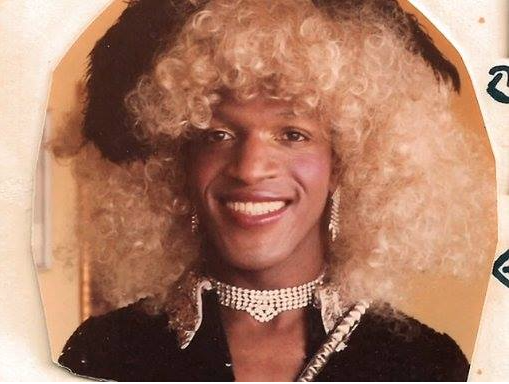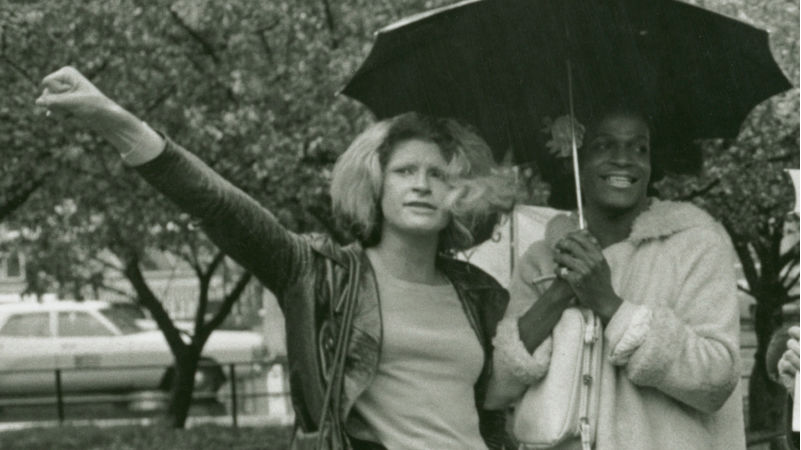“The Death and Life of Marsha P. Johnson” takes a searing look at how American society mistreated transgender and queer civil rights leaders. Directed by David France, the documentary film follows Victoria Cruz as she tries to solve the mystery behind the death of trans-activist and friend, Marsha P. Johnson.
“The Death and Life of Marsha P. Johnson” is, unfortunately, a timely exploration, not just of the many unsolved murders within the trans community, but of how the queer community, in general, has failed their transgender family. There’s a particularly heartbreaking scene where trans-activist Sylvia Rivera is booed off the stage at the 1973 Pride Parade.
During a Q and A held at the Netflix compound in Hollywood, France revealed an early working title for the film was, “We All Killed Marsha P. Johnson.” The title conveys the anger and frustration at how little was done to uncover the truth.
During that Q and A, France said of the legend, “If you were gay and living in ‘queer New York’ during Marsha’s lifetime, you knew Marsha.” Johnson was an incredibly kind woman known for giving away her clothes. If someone complimented how much they loved her scarf, she would remove it from around her neck and hand it to them.
She was also a mother to many. In the early 70’s Johnson created STAR House, a home for transgender youth. The facility was run with her best friend, Sylvia Rivera. For three years they were able to provide safe housing for kids who were often thrown out of their family homes. Johnson didn’t have a job and would often have to prostitute herself to help support those around her.
It was that kind of spirit that led many to call her a saint. She was a muse to Andy Warhol and a key participant of the Stonewall Riots, which gave birth to the Gay Civil Rights movement in 1969. When her light went out unexpectedly, the LGBTQA community, couldn’t get justice for her. France wanted to know why.
After seeing the film, we here at NYFA had some questions of our own. We asked Alejandro Ibarra, an LGBTQA identifying faculty member of the New York Film Academy about how Ms. Johnson’s life has affected their life and why documentaries like this are so important.
NYFA: What is your relationship to the Stonewall?
Ibarra: I grew up seeing Stonewall almost like a sacred, mythological place. It is a place I never thought I would see in person. It held a massive importance amongst a community that wasn’t yet tangible to me. The first time I visited the bar, I was an openly gay adult. I got goosebumps all over and my eyes were watery. I participated in a protest at Stonewall earlier this year. We stood against the government’s proposed travel ban. Being there was a powerful thing.
NYFA: What does this historic event mean to you?
Ibarra: It’s something that has greatly influenced me. Even though I was born much later, I am able to walk down the street, while holding hands with a partner, and I have the option to get married. That is all thanks to the Stonewall movement.
NYFA: What do you know of Marsha P. Johnson?
Ibarra: Quite a bit, but not enough. I did my thesis in grad school on equality and gay rights. A big part of that was the Stonewall Riots and the major activists that arose from that. Marsha P. Johnson was a part of that research.
NYFA: Has her work affected you personally? How?
Ibarra: Overall, hearing of someone being so brave, at a time where the danger was much greater, combined with the fact that she’s a woman, is incredibly inspiring. We live in a time when the gay community needs to be very vocal. We have to fight and stand our ground. People like Johnson give us fuel to keep going.
Her work with the trans and drag community has had an immeasurable impact. She even stood against members of the community who were scared of the images drag culture projected to the straight and cis-gender peoples of the world.
NYFA: What other LGBTQ documentaries have had a positive effect on society?
Ibarra: A recent one that comes to mind is, “Do I Sound Gay?” It addressed a stereotype, not just within the community, but with how other people view LGBTQA individuals. Another powerful documentary that I think all my friends, LGBTQA or not, were affected by, is “Bridegroom.” That film is such a heartbreaking story. I think it moved everyone, regardless of their association or opinion of the community.
NYFA: For those who don’t know Ms. Johnson’s legacy, what do you hope this documentary tells them?
Ibarra: I hope it illuminates young queer people the same way I felt illuminated when I first learned about her. It put a face and name to the people who fought for me. I’m able to live, as openly as I do now, because of her work. It has a different weight and importance when you are able to think of a specific person and be grateful for their contributions.
The New York Film Academy would like to thank Netflix for giving us an opportunity to screen this film. Be sure to watch “The Death and Life of Marsha P. Johnson” in theaters and on Netflix starting Friday, October 6th, 2017.

